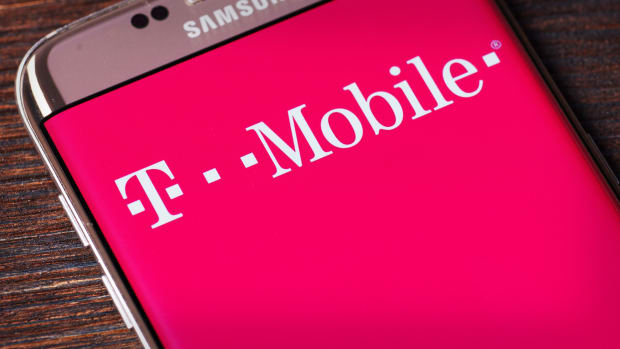Concern for mental health has, for the last several years, been a lucrative marketing opportunity for many brands — big names in everything from entertainment to technology have been sharing resources for tackling mental illness, releasing statements of concern, and donating to all manner of mental health awareness causes both for full-time employees and even customers.
While the authenticity (and, more to the point, usefulness) of such campaigns frequently comes under scrutiny, it has gotten to the point that you're not a company of a certain size if you haven't spent a lot of money on a high-profile mental health campaign.

Shutterstock
What Is T-Mobile Doing in This Domain?
The latest corporation to announce a mental health program is telecommunications provider T-Mobile (TMUS).
While the American subsidiary of Deutsche Telekom already had a hotline for getting mental health resources that customers could access by dialing 988, the wireless network provider has now launched a similar program for those who'd rather text than call.
The text hotline functions similarly to the phone crisis line — texting to 988 will get one access to a counselor at one of 200 National Suicide Prevention Hotline locations across the country at any time of day or night.
The goal is to reach those who may be dealing with a wide spectrum of mental health problems but feel uncomfortable talking about it by voice. The counselors are trained to deal with everything from everyday anxiety to someone who is contemplating suicide.
"The simple act of instilling hope through a call or text can potentially help save lives, and we laud the FCC for their efforts to guide the wireless industry on this important, people-first effort," T-Mobile CEO Mike Sievert said in a statement.
To keep it free for those in North America, calls to the hotline are rerouted to a 1-800 number while texts are also generated in a way that prevents users from being charged for them.
What's the Limit of What Brands Can Do for Mental Health?
The reason mental health awareness has become such a trending topic is, in large part, the scope of the problem — incidences of anxiety and depression alone increased by more than 25% since the start of lockdowns related to the covid-19 pandemic.
But while the pandemic made certain issues impossible to ignore, the discussion around corporations' role in raising mental health awareness dates back more than a decade truly started gaining speed in the early 2010s with the rise of short-term campaigns drawing awareness to problems like teenage bullying or depression.
The specific ways companies invest in this area changes depending on current social norms — from suicide prevention campaigns following the deaths of high-profile celebrities like Robin Williams or Kate Spade to giving employees paid time off as the discussion centered around burnout at the height of the pandemic.
"Our senior leaders are all sending a clear message: take the time to unwind, destress and spend time with your loved ones," Nike (NKE) manager Matt Marrazzo wrote on his LinkedIn page in 2021. "Do not work."
For both big and small companies, not participating in these discussions can sometimes come off as out of touch with the times — a recent Harvard Business Review survey found that 91% of respondents believed that they want companies' culture to support mental health in 2022. This number rose from 86% in 2019.







